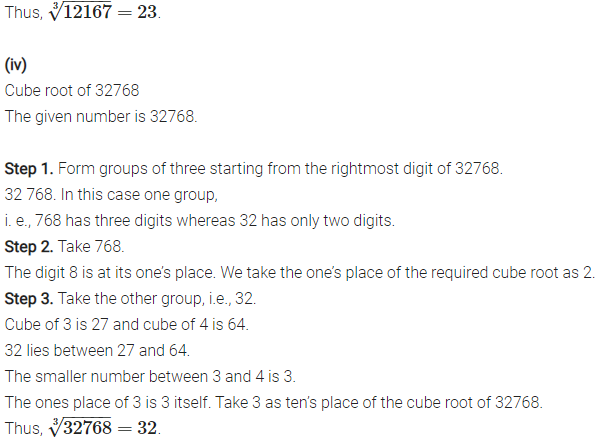Question 1.
Which of the following numbers are not perfect cubes?
- (i) 216
- (ii) 128
- (iii) 1000
- (iv) 100
- (v) 46656
Solution.
(i) 216
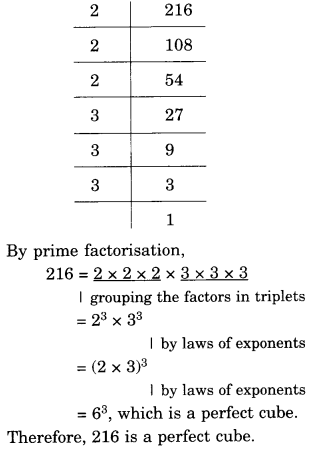
(ii) 128
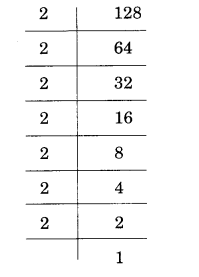
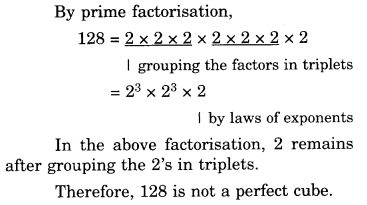
(iii) 1000
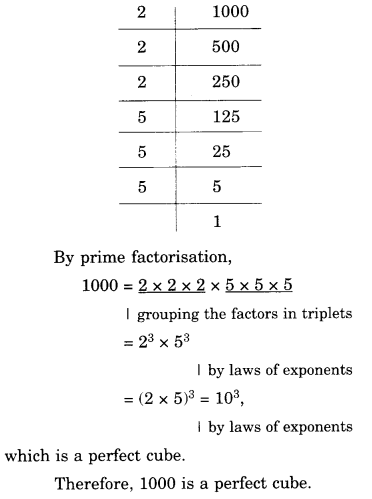
(iv) 100
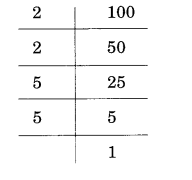
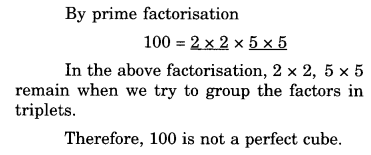
(v) 46656
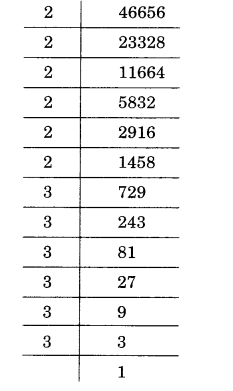
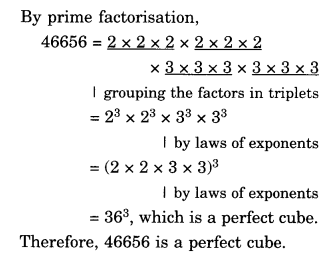
Question 2.
Find the smallest number by which each of the following numbers must be multiplied to obtain a perfect cube.
- (i) 243
- (ii) 256
- (iii) 72
- (iv) 675
- (v) 100
Solution.
(i) 243
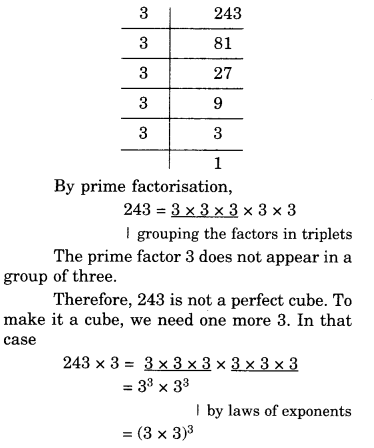
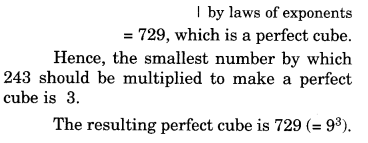
(ii)256
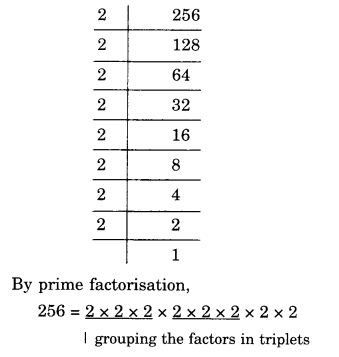
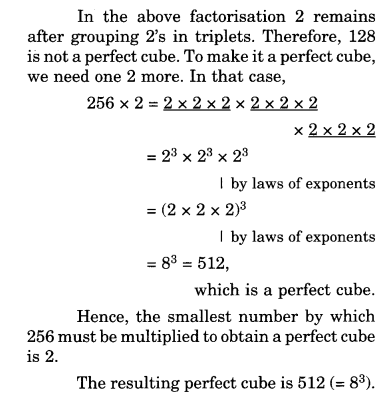
(iii)72
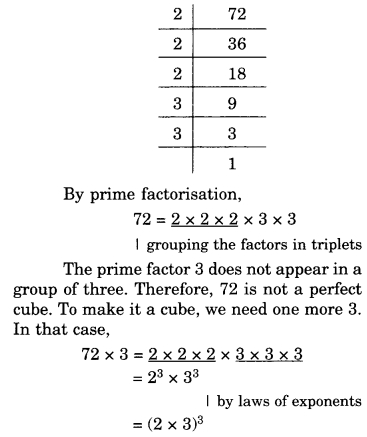
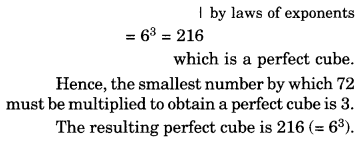
(iv)675
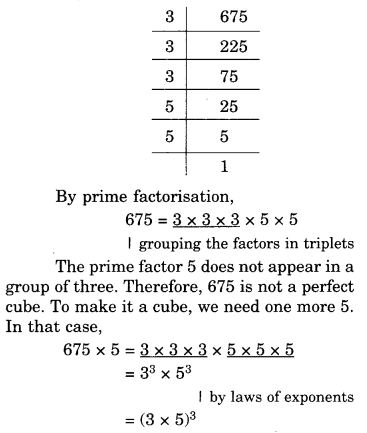
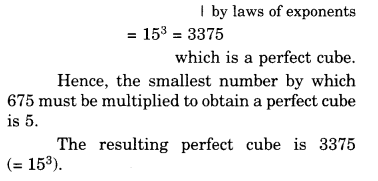
(v)100

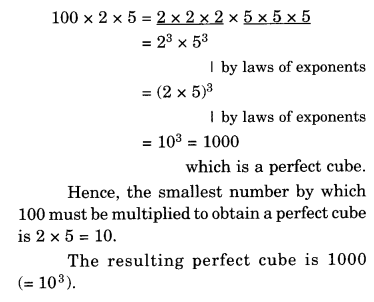
Question 3.
Find the smallest number by which each of the following numbers must be divided to obtain a perfect cube.
- (i) 81
- (ii) 128
- (iii) 135
- (iv) 192
- (v) 704
Solution.
(i) 81
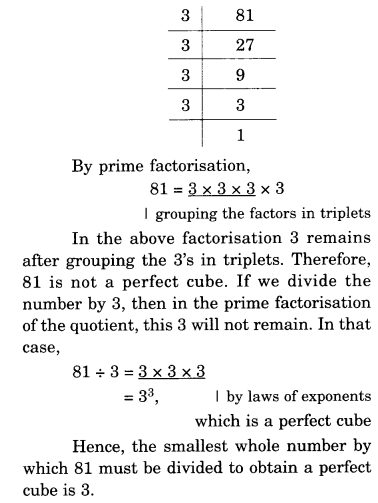

(ii) 128
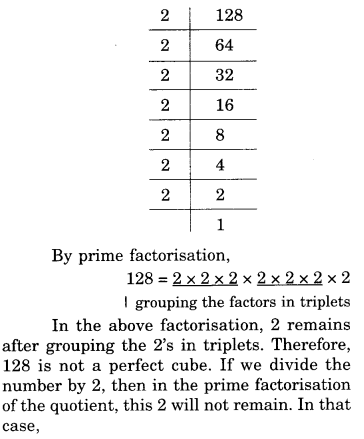
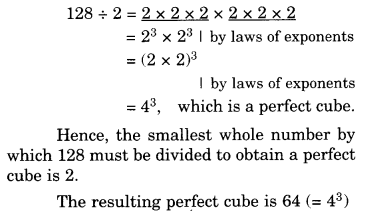
(iii)135
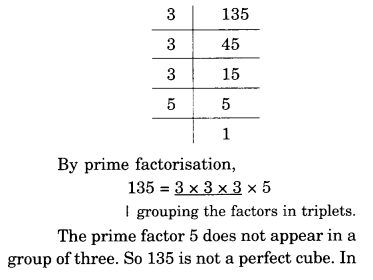
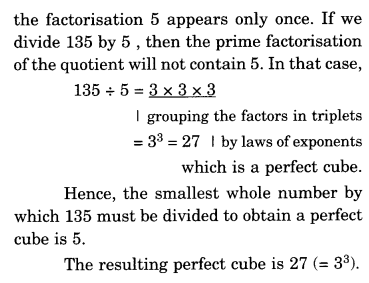
(iv)192
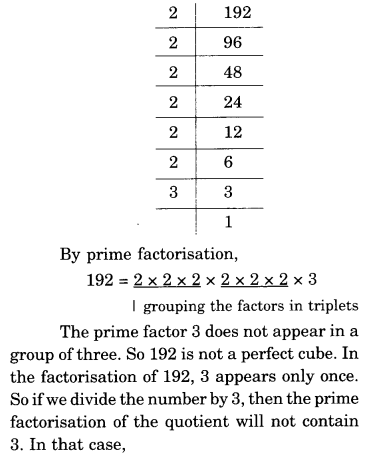
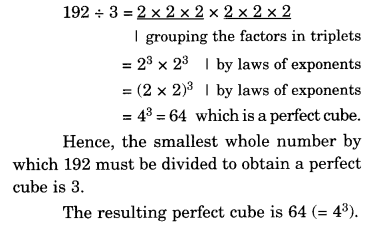
(v)704
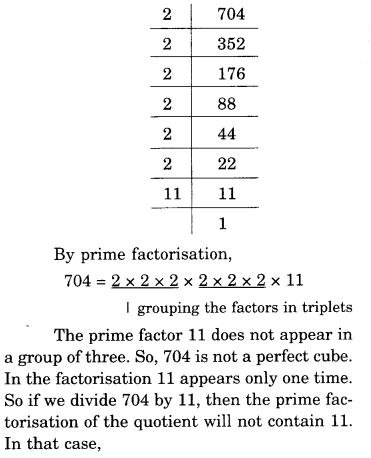
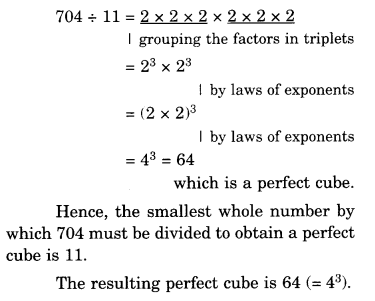
Question 4.
Parikshit makes a cuboid of plasticine of sides 5 cm, 2 cm, 5 cm. How many such cuboids will he need to form a cube?
Solution.
Volume of a cuboid = 5 x 2 x 5 cm3.
Since there is only one 2 and only two 5’s in the prime factorization, so, we need 2 x 2 x 5, i.e., 20 to make a perfect cube. Therefore, we need 20 such cuboids to make a cube.
Question 1.
Find the cube root of each of the following numbers by prime factorisation method:
- (i) 64
- (ii) 512
- (iii) 10648
- (iv) 27000
- (v) 15625
- (vi) 13824
- (vii) 110592
- (viii) 46656
- (ix) 175616
- (x) 91125
Solution.
(i) 64
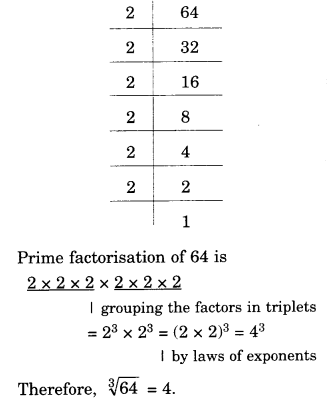
(ii)512
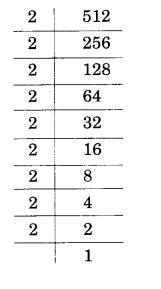
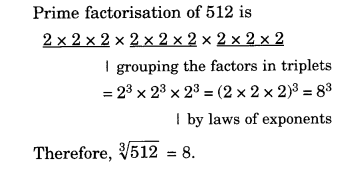
(iii)10648
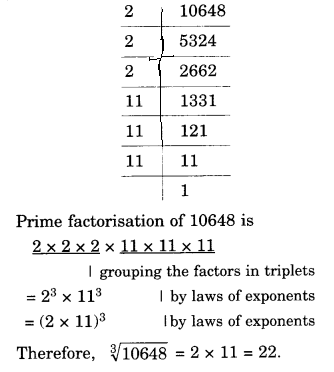
(iv)27000
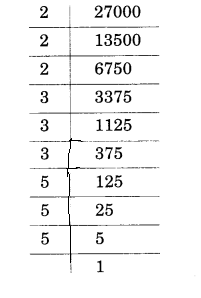
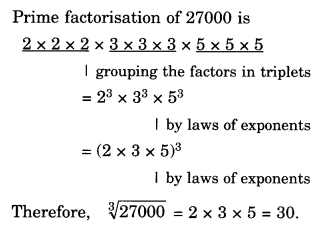
(v)15625
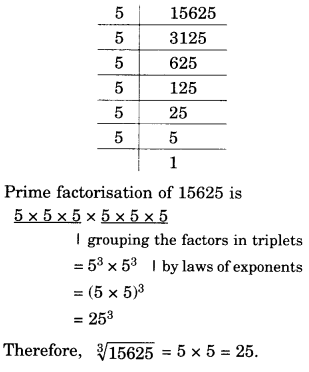
(vi)13824
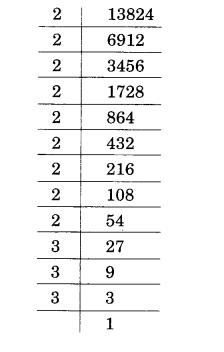
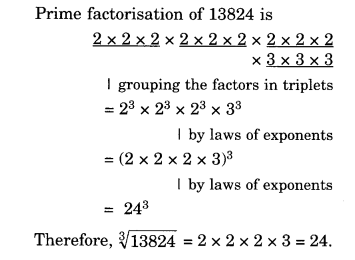
(vii)110592
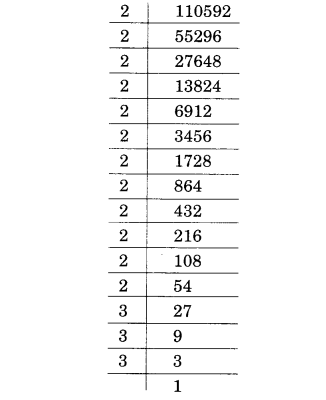
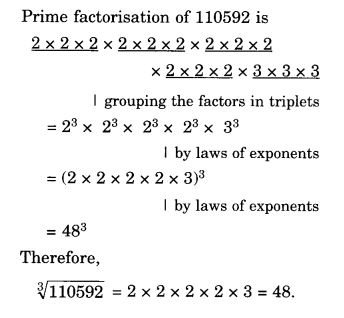
(viii)46656
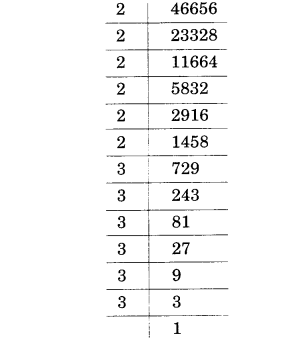
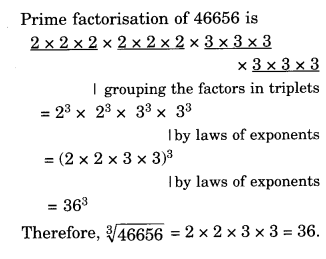
(ix)175616
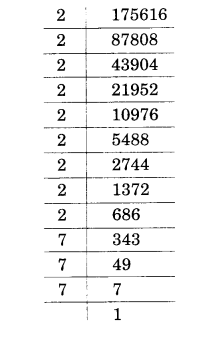
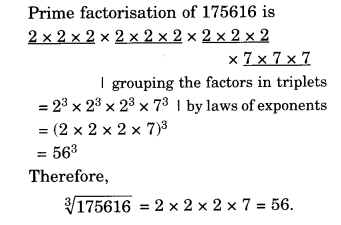
(x)91125
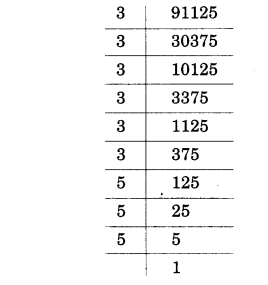
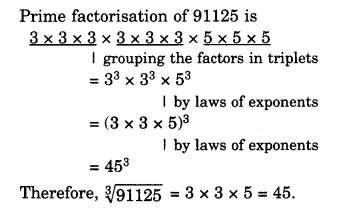
Question 2.
State true or false:
- (i) Cube of any odd number is even,
- (ii) A perfect cube does not end with two zeros.
- (iii) If square of a number ends with 5, then its cube ends with 25.
- (iv) There is no perfect cube which ends with 8.
- (v) The cube of a two digit number may be a three digit number.
- (vi) The cube of a two digit number may have seven or more digits.
- (vii) The cube of a single digit number may be a single digit number.
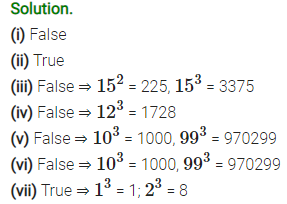
Question 3.
You are told that 1,331 is a perfect cube. Can you guess without factorization what is its cube root? Similarly, guess the cube roots of 4913, 12167, 32768.
Solution.
By guess,
Cube root of 1331 =11
Similarly,
Cube root of 4913 = 17
Cube root of 12167 = 23
Cube root of 32768 = 32
EXPLANATIONS
(i)
Cube root of 1331
The given number is 1331.
Step 1. Form groups of three starting from the rightmost digit of 1331. 1 331
In this case, one group i.e., 331 has three digits whereas 1 has only 1 digit.
Step 2. Take 331.
The digit 1 is at one’s place. We take the one’s place of the required cube root as 1.
Step 3. Take the other group, i.e., 1. Cube of 1 is 1.
Take 1 as ten’s place of the cube root of 1331.
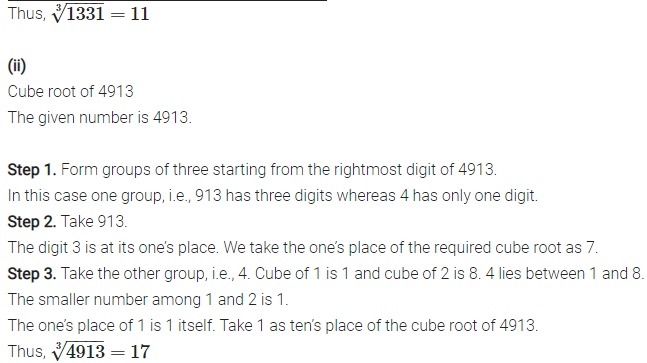
(iii)
Cube root of 12167
The given number is 12167.
Step 1. Form groups of three starting from the rightmost digit of 12167.
12 167. In this case, one group, i. e., 167 has three digits whereas 12 has only two digits.
Step 2. Take 167.
The digit 7 is at its one’s place. We take the one’s place of the required cube root as 3.
Step 3. Take the other group, i.e., 12. Cube of 2 is 8 and cube of 3 is 27. 12 lies between 8 and 27. The smaller among 2 and 3 is 2.
The one’s place of 2 is 2 itself. Take 2 as ten’s place of the cube root of 12167.
Thus, A/12167 = 23.
